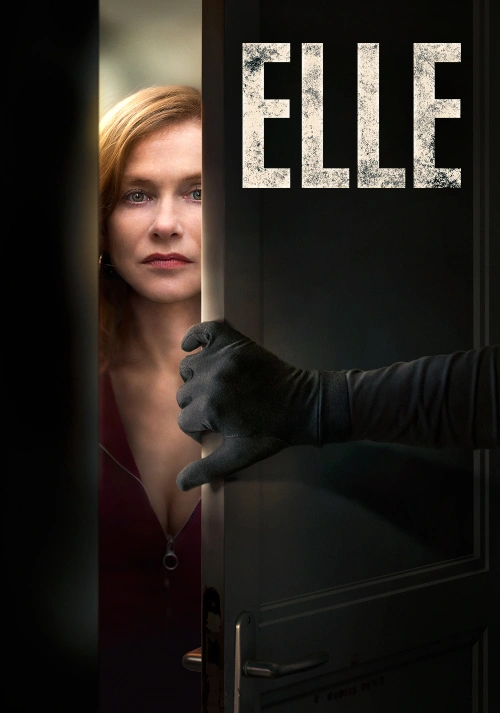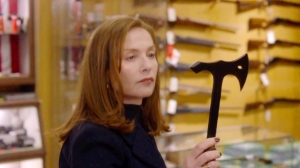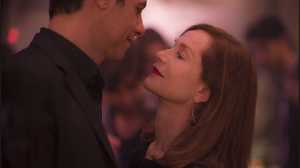Star Rating 4/5
Director:
- Paul Verhoeven – Robocop, Basic Instinct, Starship Troopers, Black Book, Lyon 1943
Cast:
- Isabelle Hubbert – Hidden Love, Amour, The Disappearance of Eleanor Rigby: Them, Barrage
- Laurent Latiffe – The Crimson Rivers, Little White Lies, Divorce French Style, KO
- Anne Consigny – 36th Precinct, Wild Grass, History’s Future, La Deuxième Étoile
- Charles Berling – Ridicule, Forbidden House, March of the Penguins, Flueve Noir
- Virginie Efira – Second Chance, It Boy, Up For Love, Pris de Court
- Christian Berkel – Downfall, Inglorious Basterds, Anti-Social, In Wahrheit
- Judith Maguire – The Lovers, Jesus of Montreal, Nathalie…, Parisiennes
- Jonas Bloquet – Private Lessons, The Family, 3 Days To Kill, Valerian and the City of a Thousands Planets
- Alice Isaaz – The Gilded Cage, Smart Ass, One Wild Moment, Espèces Menacées
Music Composer:
- Anne Dudley – The Gathering, Black Book, Poldark, Away
How did Emma Stone win the Oscar for Actress in a Leading Role earlier this year? Yes, her performance in La La Land was decent. But it was not Oscar worthy. There were other performances than deserved the award more than hers. One need only look at Amy Adams’ two superb performances in Nocturnal Animals and Arrival to see better performances (both of which were scandalously disregarded even for nominations!). Another performance is that of Isabelle Hubbert in Elle.
Elle is directed by Paul Verhoeven and based on the book oh… by Philippe Dijon. The film begins with Michèle (Isabelle Hubbert), a successful business woman, getting raped in her plush Parisian home by someone wearing a ski mask. Who is it? And, more pertinently, why does Michèle not call the police?
Elle is a French psychological thriller. Paul Verhoeven has Showgirls and Basic Instinct in his back catalogue. But neither of those films are on a par with Elle as Elle is highly disturbing and morally bankrupt film, even by the standards of the genre.
The movie revolves around Michèle and the people who surround her: in particular, her friends; her neighbours; her colleagues; her aging mother and her (toyboy) boyfriend; and her delinquent son and his (scummy) girlfriend. Very soon into the film, however, it becomes apparent that our protagonist plays fast and loose with the truth and that she is not just an unfortunate victim of a horrific crime. This is a woman with a bad past and her behaviour is that of a sociopath.
Furthermore, Michèle does not react to the rape like someone who has been raped. (Granted, there is no single reaction to this and everyone reacts differently, but) Michèle displays no hint of numbness or of being shattered, personality-wise. This raises the troubling question of whether she has been raped at all; especially as, before long, her rapist is texting her. How many masked rapists do that? Also, the rapist broke into her house. Why is there no sign of a break in?
These are for Elle to answer. Yet, when the answers come they don’t make sense in the context of the rest of the film. This is very disappointing. One can expect to be thrown off guard by a psychological thriller, for sure. Gone Girl did that with spectacular success and jaws gaped. But with Elle, one merely thinks: huh?
This is not the only problem with the movie. The score is filled with cheap tropes. Foreboding music plays on the nerves when it is unnecessary, where there is no danger for the characters. This irritates the viewer after a while, as the music is as untrustworthy as our central protagonist.
Speaking again of Michèle, Isabelle Hubbert plays her phenomenally well and covers many of the holes in Elle’s plot. Indeed, all of the actors play really well. Yet, Hubbert is outstanding in the lead role. She captivates and makes her character come alive in a dishearteningly plausible way. This feat should not be underestimated as Michèle is a multifaceted person, who is as envious as she is successful, as underhand as she is shameless, and as villainous as she is a victim. This again forces one to question how Emma Stone won the Oscar earlier this year. Stone’s role in La La Land was not nearly as demanding as Hubbert’s in Elle, and Stone did not hold the attention of the audience as Hubbert does here.
All-in-all, Elle is a French psychological thriller. It has its flaws story-wise, and it is sick and twisted at its core. But it also has brilliant, praiseworthy performances; Isabelle Hubbert’s being exceptional. It is a shame that she has not received more recognition and awards for her role. It is a travesty that she was overlooked in favour of Emma Stone.
PG’s Tips























